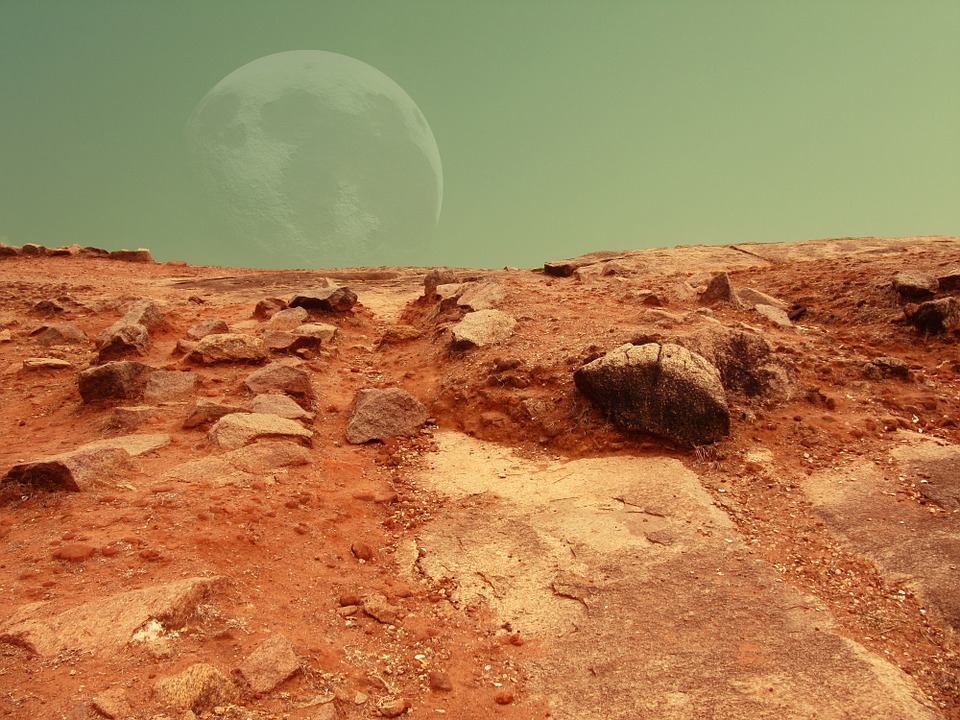Space agencies all over the world are looking to Mars as the next destination in space exploration. With goals to colonize the Red Planet in the coming years, a report from NASA reveals that humans can make use of the planet’s lava tubes as a potential settlement.
Express reports that a study analyzing 1,500 photos taken by Mars’ Reconnaissance Orbiter, scientists believe that the lava tubes that may be present on the Red Planet’s terrain may provide shelter for astronauts that may be sent up there. These lava tubes were found in Hellas Planitia on Mars’ southern hemisphere, formed 4.1 to 3.8 billion years ago, and are known for having many volcanic formations.
The lava tubes on Mars were made from once-flowing magma and were formed when the magma flow cooled instantly. This resulted in a crust over the surface of the Red Planet. When the lava flow stops, it drains out the tube and leaves behind an empty space.
It is these formations that scientists believe could protect astronauts from solar or cosmic radiation that is present in space. Mars has a very thin atmosphere and a weak magnetic field; thus radiation is a big concern on the red planet. Scientists have estimated the exposure to radiation may decrease at around 82 percent within the lava pits. The caverns of the lava tubes may also be closed, providing a breathable environment for astronauts, who, in turn, could install heat sources inside.
According to the Center for Planetary Science director Dr. Antonio Paris, the lava tubes near the planet’s old volcanic mountain named Hadriacus Mons, could be used as a natural radiation shelter for crewed missions to Mars.
However, despite the optimism towards the possibility of being able to settle or stay on Mars for a period of time, a study conducted by the Southwest Research Institute in the United States reveals that the temperatures may be too extreme to find life outside Earth. The conditions on Mars prevent water from becoming stable, and instead, would either freeze, turn into vapor, or boil, including salt deposits or briny water.



 Senate Sets December 8 Vote on Trump’s NASA Nominee Jared Isaacman
Senate Sets December 8 Vote on Trump’s NASA Nominee Jared Isaacman  FDA Lifts REMS Requirement for CAR-T Cell Cancer Therapies
FDA Lifts REMS Requirement for CAR-T Cell Cancer Therapies  SpaceX’s Starship Completes 11th Test Flight, Paving Way for Moon and Mars Missions
SpaceX’s Starship Completes 11th Test Flight, Paving Way for Moon and Mars Missions  CDC Vaccine Review Sparks Controversy Over Thimerosal Study Citation
CDC Vaccine Review Sparks Controversy Over Thimerosal Study Citation  Trump Signs Executive Order to Boost AI Research in Childhood Cancer
Trump Signs Executive Order to Boost AI Research in Childhood Cancer  Neuralink Plans High-Volume Brain Implant Production and Fully Automated Surgery by 2026
Neuralink Plans High-Volume Brain Implant Production and Fully Automated Surgery by 2026  Tabletop particle accelerator could transform medicine and materials science
Tabletop particle accelerator could transform medicine and materials science  Blue Origin’s New Glenn Achieves Breakthrough Success With First NASA Mission
Blue Origin’s New Glenn Achieves Breakthrough Success With First NASA Mission  Lost in space: MethaneSat failed just as NZ was to take over mission control – here’s what we need to know now
Lost in space: MethaneSat failed just as NZ was to take over mission control – here’s what we need to know now  Astronomers have discovered another puzzling interstellar object − this third one is big, bright and fast
Astronomers have discovered another puzzling interstellar object − this third one is big, bright and fast  Trump and Merck KGaA Partner to Slash IVF Drug Costs and Expand Fertility Coverage
Trump and Merck KGaA Partner to Slash IVF Drug Costs and Expand Fertility Coverage  SpaceX Starship Test Flight Reaches New Heights but Ends in Setback
SpaceX Starship Test Flight Reaches New Heights but Ends in Setback  Cogent Biosciences Soars 120% on Breakthrough Phase 3 Results for Bezuclastinib in GIST Treatment
Cogent Biosciences Soars 120% on Breakthrough Phase 3 Results for Bezuclastinib in GIST Treatment 































